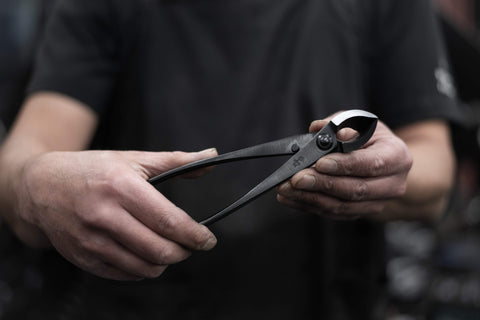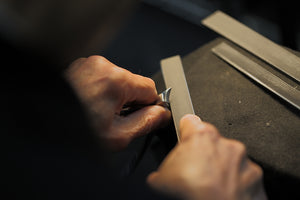A lot of packages mention ''handmade'' or ''small production''. But what does it actually mean? If you ever read a label like that and didn't exactly know what it implies, this article is for you.
Before Mass Production
Until about 100 years ago, all products were made by hand. Made of glass, metal, leather, wood, for home, for work and for special occasions. Everything was made by artisans who had spent their childhood doing an apprenticeship next to a master, learning a craft. This was the case for everything. Ford Motors changed this with the first mass produced vehicle, and set the tone for the rest of the 20th century.
Cheap Products flooded the markets
The introduction of new materials in the 20th century, like plastic, has changed the way product production works. Plastic gave big companies the ability to make cheap products in large quantities and distribute them easily. The rise of cheap labour in Asia has concentrated production there, flooding the world with fast producing items, low in quality and often detrimental to your health. China became the factory of the world.
Fast Fashion
In the beginning of the 21st century, fast fashion became the model of clothing companies, pushing the production of cheap clothes to new extremes. Accusations of bad labour conditions in Asian factories against shoe and clothing companies brought a lot of attention to these practices, questioning the idea of cheap products altogether. They depend on slave like working conditions and hazardous materials, something no american or european worker would accept.
What happened to all the artisans?
''Handmade'' became a less common phenomenon, cherished by few. It went from normal, to rare; from regular to expensive. A mass production gave access of goods to everyone, hand crafts became more valuable, and in some cases collectable.
It is important to note that handmade products are not high priced, with a few notable exceptions of premium brands. Home items for example were an investment before mass production. A cooking pan was supposed to last 50 years, a nail nipper or a knife were supposed to be passed down to a relative. A musical instrument was made to last centuries... The idea was that you are responsible to maintain your treasures.

Traditional crafts were almost lost during the 20th century. Thanks to a new generation of environmentally conscious leaders, hand production is coming back in the home and garden markets.
Graduates in Japan learn traditional crafts, and partake in factory productions using metal, wood or glass. Japan is leading the world in handmade production, with Suwada showing the way in educating young artisans in metalworks.

The bread analogy
Sometimes it is difficult to communicate the feeling you get from a handmade product. It is, without a doubt, an experience.
I always use bread as an analogy to explain it. Imagine you normally buy a precut bread from the supermarket. it's okay, it works fine. It might give you some health problems along the way but right now you can afford it. Now imagine the supermarket has a french baker working inside, making every bread himself, every day, from scratch. Organic flour, filtered water, salt, his own starter and... that's it. That's french bread. You can still afford it easily, and the quality is something your whole family is excited about!
This is how a handmade product differs from machine made.

Back in Vogue
Hand made items are precious, they carry their regular value but also the history of the hands who made them. Artisans touch their products, they are proud to work on them. One might say that their spirit is imprinted in the product. That is something no machine can do. It is a human quality.

Think of handmade cars. They are high precision machines, reliable, great looking and fun. These qualities exist in all handmade products.
So when you read a label saying handmade, you may think, who made it? How was it made? What's the history behind it?
Next time you to buy something, think of these lines. You have the power to change the market.


